Abstract
This study examined the quality of children's assent to a clinical trial. In subjects younger than 9 years of age, understanding of most aspects of the study was found to be poor to non-existent. Understanding of procedures was poor in almost all subjects. In addition, voluntariness may have been compromised in many subjects by their belief that failure to complete the study would displease others. If the fact that a child's assent has been obtained is used to justify the exposure of that child to the potential harm of a non-therapeutic blood sample, the assent must be meaningful. In the nutrition study observed here, the quality of the assent of children younger than 9 years of age was very poor. The assent therefore did not provide a valid justification for requesting a blood sample from these children. This study indicates that most children younger than 9 years of age cannot be expected to consent or assent to clinical research in a meaningful way. The current age of 7 years for initiating assent (in addition to parental consent) is possibly not appropriate and should be reconsidered.
Full text
PDF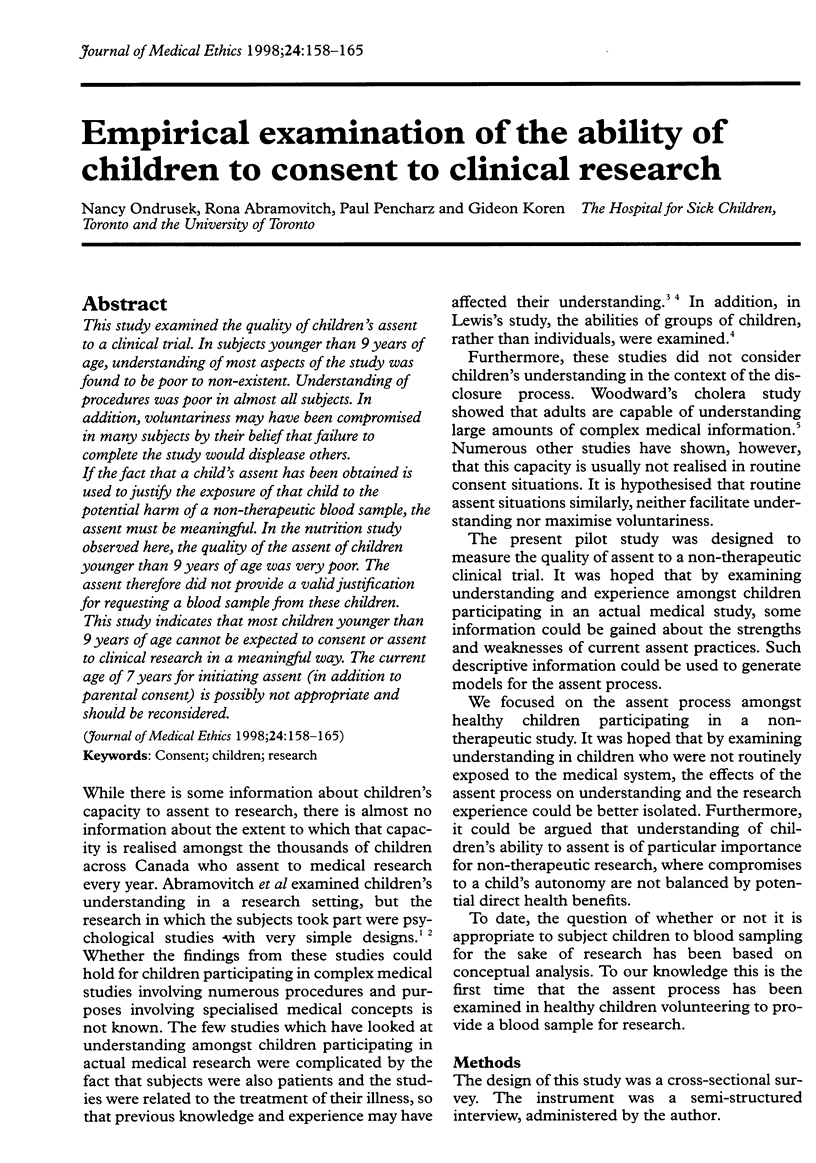
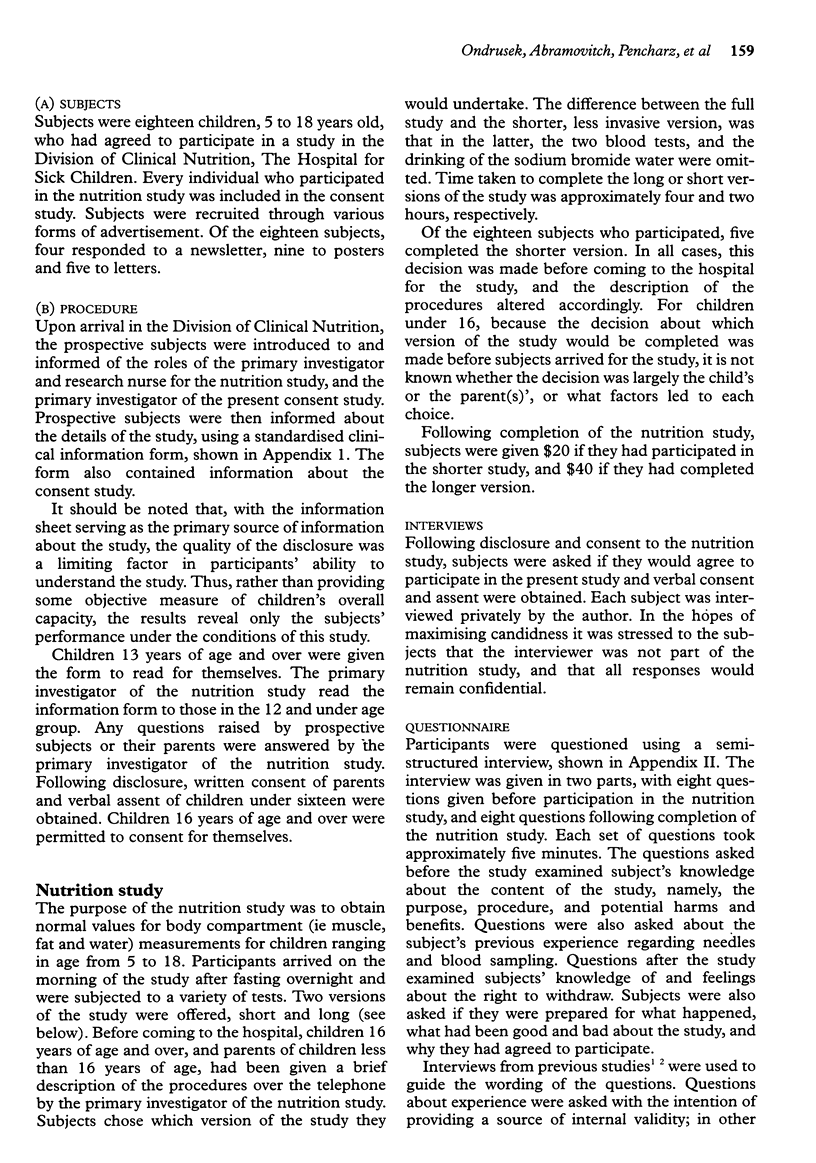
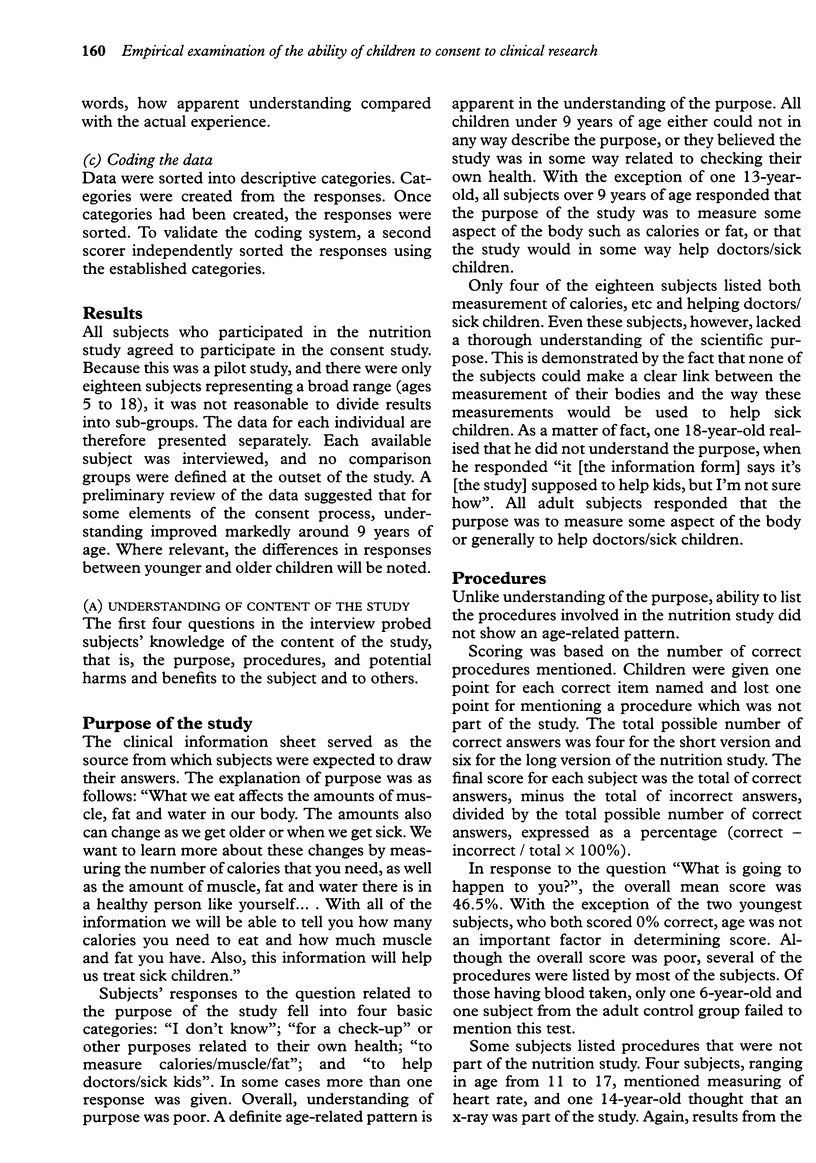
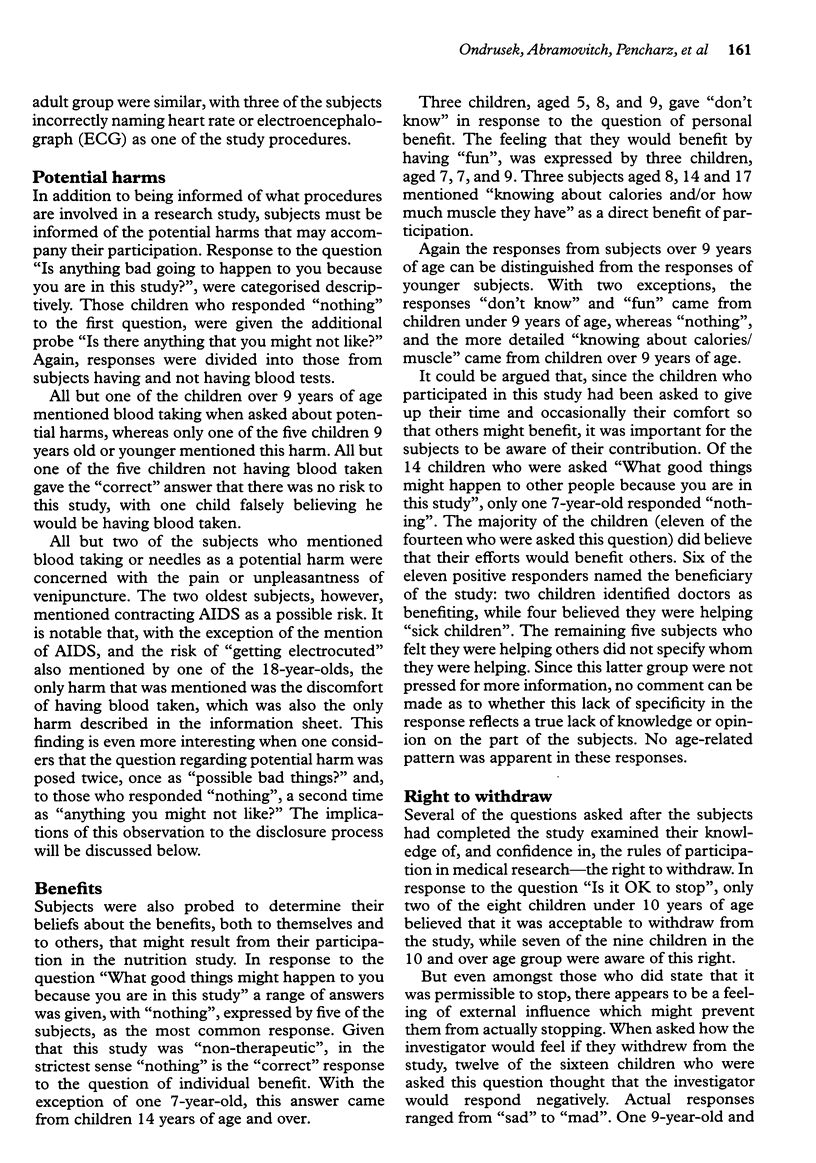
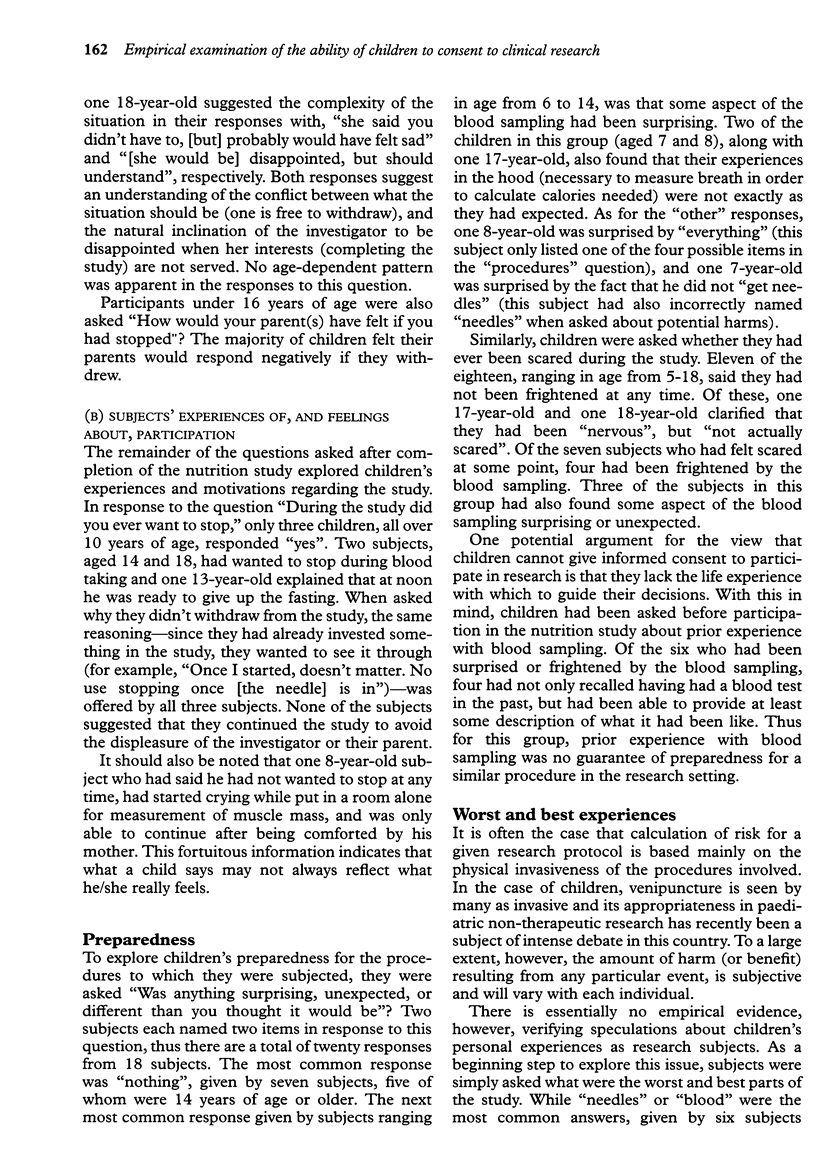
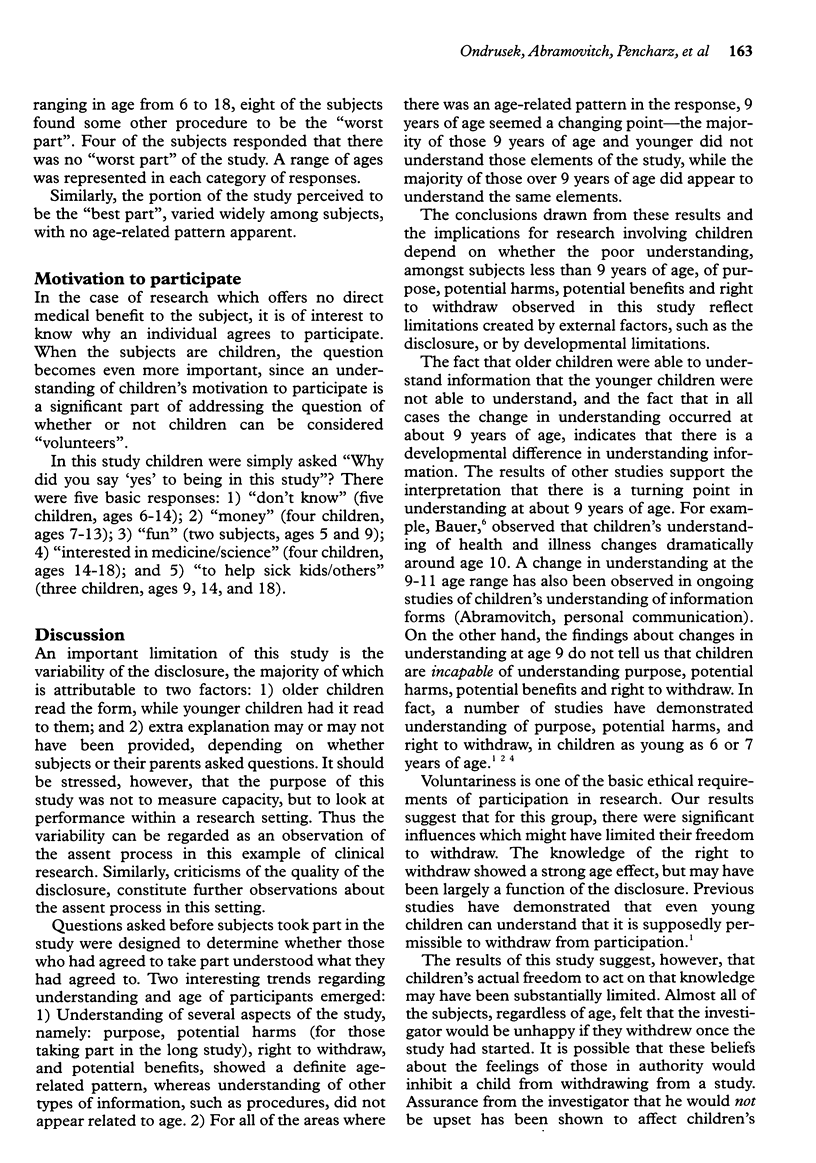
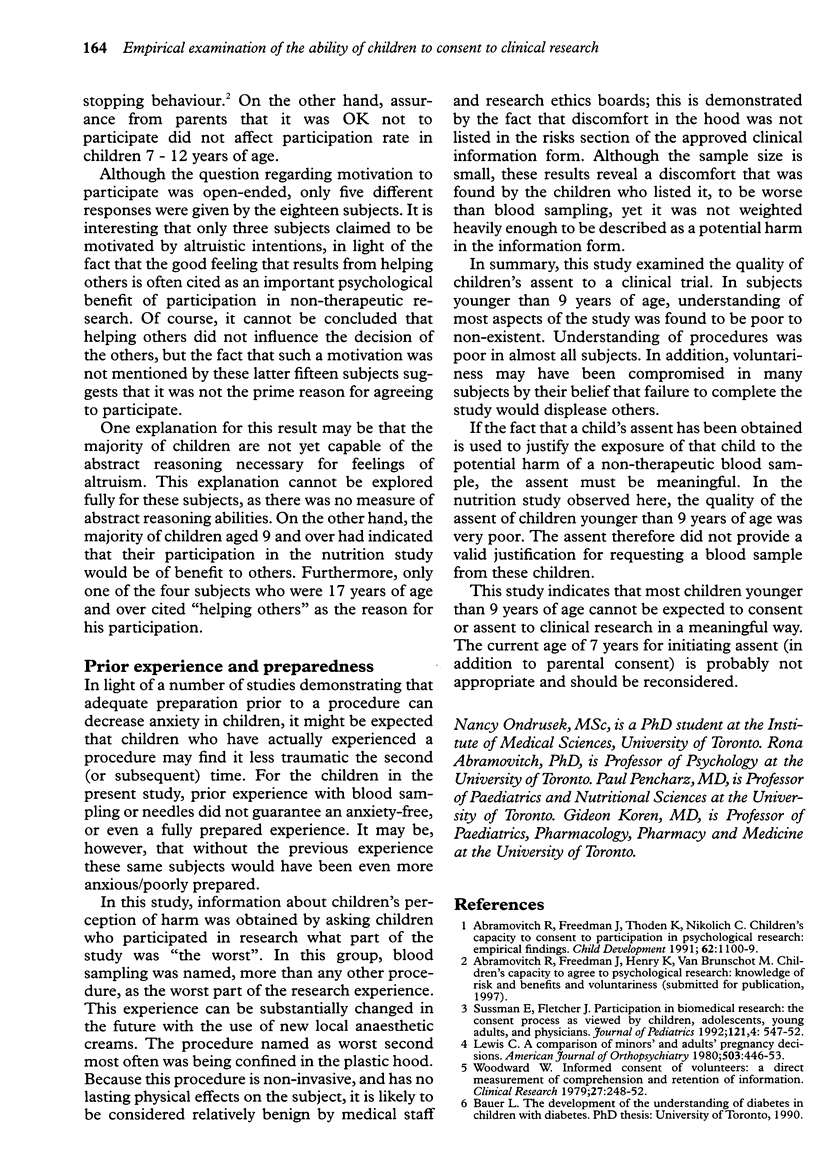
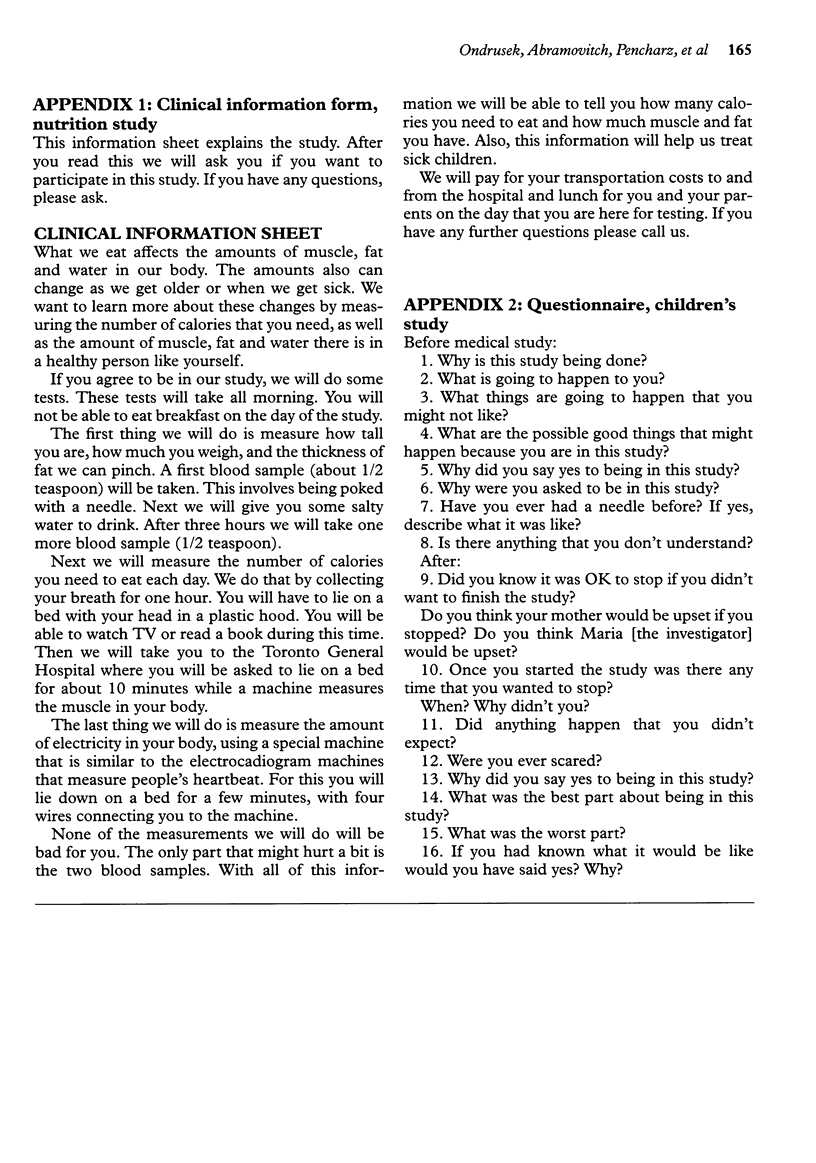
Selected References
These references are in PubMed. This may not be the complete list of references from this article.
- Lewis C. C. A comparison of minors' and adults' pregnancy decisions. Am J Orthopsychiatry. 1980 Jul;50(3):446–453. doi: 10.1111/j.1939-0025.1980.tb03304.x. [DOI] [PubMed] [Google Scholar]
- Susman E. J., Dorn L. D., Fletcher J. C. Participation in biomedical research: the consent process as viewed by children, adolescents, young adults, and physicians. J Pediatr. 1992 Oct;121(4):547–552. doi: 10.1016/s0022-3476(05)81142-4. [DOI] [PubMed] [Google Scholar]
- Woodward W. E. Informed consent of volunteers: a direct measurement of comprehension and retention of information. Clin Res. 1979 Sep;27(3):248–252. [PubMed] [Google Scholar]


